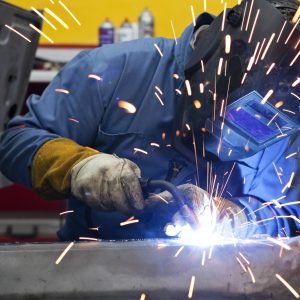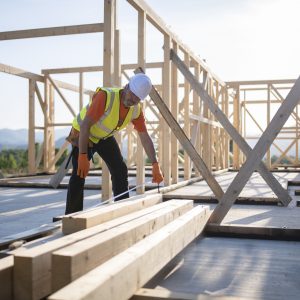In Tasmania, builder accreditation is categorised into four classes: Builder, Construction Manager, Fire Protection Services Builder, and Demolisher. Within each category, there are three classes: Low rise, Medium rise, and Open. Obtaining the appropriate builder’s licence depends on your qualifications, experience, and references.
Applying for a Builder’s License in Tasmania
If you are involved in building, demolition, design, or assessment and certification work, you may need to apply for a building services provider licence. The types of licences available include builder, architect, engineer, building designer, building services designer, building surveyor, permit authority, body corporate, partnership, and planning consultant. Each licence type has unique requirements and limitations, allowing you to perform work within your area of competence based on your qualifications, experience, and capabilities.
Why get a builders or trades licence in Tasmania
Obtaining the appropriate builder’s licence in Tasmania is essential for individuals and businesses operating in the building and construction industry. By meeting the specific qualifications, experience, and reference requirements, you can demonstrate your competence and professionalism. It is crucial to thoroughly understand the licensing process and requirements associated with your desired licence class.
For detailed information and to ensure compliance, visit the Department of Justice (Tasmania) website and consult with the relevant authorities. Obtaining the necessary licences not only ensures legal compliance but also enhances your reputation and opportunities in the thriving building and construction sector of Tasmania.
Types of builder’s licences in Tasmania
In Tasmania, the builder’s licence system is organised into four distinct categories, each representing different areas of specialisation within the construction industry. These categories are as follows:
Builder
The Builder category encompasses individuals who engage in general building construction projects. They are responsible for overseeing the construction process, managing resources, and ensuring compliance with building codes and regulations.
Construction Manager
The Construction Manager category is designed for individuals who possess advanced skills in managing construction projects. They are responsible for overseeing multiple aspects of the construction process, including planning, coordination, and project execution.
Fire Protection Services Builder
The Fire Protection Services Builder category pertains to individuals specialising in the installation and maintenance of fire protection systems in buildings. They have expertise in designing, installing, and ensuring the functionality of fire safety measures, such as fire alarms, sprinkler systems, and fire extinguishers.
Demolisher
The Demolisher category is dedicated to individuals engaged in the controlled demolition of structures. They possess the knowledge and skills to safely dismantle buildings, ensuring compliance with safety regulations and environmental considerations.
Each of these four categories is further divided into three classes, representing different levels of expertise and project scope:
Low Rise
The Low Rise class is associated with building projects of relatively smaller scale, typically up to a certain height limit. Builders within this class are qualified to undertake construction work in low-rise buildings such as residential houses and small commercial structures.
Medium Rise
The Medium Rise class pertains to builders who are qualified to handle construction projects of medium complexity and scale. They have the expertise to undertake projects in mid-rise buildings, including apartment complexes, offices, and commercial buildings.
Open
The Open class represents the highest level of builder’s licence available in Tasmania. Builders in this class possess advanced qualifications and experience, enabling them to undertake complex and large-scale construction projects without specific height restrictions.
Types of Trades in the Construction Industry
The construction industry encompasses a wide range of trades, each playing a crucial role in the planning, design, and construction of buildings and infrastructure. Here are some of the key trades commonly found in the construction industry:
Builders and Contractors
Builders and contractors oversee the construction process, manage the workforce, coordinate subcontractors, and ensure that the project is completed according to the plans and specifications. They have a deep understanding of various construction techniques and materials.
Architects and Designers
Architects and designers are responsible for creating the architectural plans and designs of buildings. They consider factors such as aesthetics, functionality, and safety to create innovative and sustainable designs that meet the client’s requirements.
Carpenters and Joiners
Carpenters and joiners work with wood and other materials to construct and install building frameworks, doors, windows, and various architectural elements. They have expertise in carpentry techniques, joinery, and woodworking.
Plumbers
Plumbers install and maintain the plumbing systems in buildings. They are skilled in connecting pipes, fixtures, and appliances to ensure the proper flow of water, drainage, and gas systems.
Electricians
Electricians handle the installation, maintenance, and repair of electrical systems in buildings. They are knowledgeable about electrical codes, wiring, lighting, and power distribution to ensure safe and functional electrical infrastructure.
Painters and Decorators
Painters and decorators are responsible for applying paint, varnish, or wallpaper to surfaces, both interior and exterior. They have expertise in colour selection, surface preparation, and various painting techniques to achieve a desired aesthetic finish.
Masons and Bricklayers
Masons and bricklayers work with bricks, stones, and concrete blocks to build walls, foundations, and other structures. They possess skills in mortar mixing, bricklaying techniques, and precise masonry work.
Roofers
Roofers specialise in installing and repairing roofs, including various materials such as shingles, tiles, or metal sheets. They ensure that roofs are weatherproof and structurally sound.
HVAC Technicians
HVAC (Heating, Ventilation, and Air Conditioning) technicians install, maintain, and repair heating, cooling, and ventilation systems in buildings. They ensure optimal indoor climate control and air quality.
These are just a few examples of the trades involved in the construction industry. Each trade requires specialised skills, training, and expertise to contribute to the successful completion of construction projects.
Note, Skilled Certified is not a licence authority, please contact your local state licensing authorities for up-to-date information on licensing and permit requirements in Tasmania.


















1 Comment
Great post on occupational health and safety in Edmonton! At Total Group, we believe workplace safety is essential. Our training programs help businesses stay compliant while protecting employees and creating safer work environments.